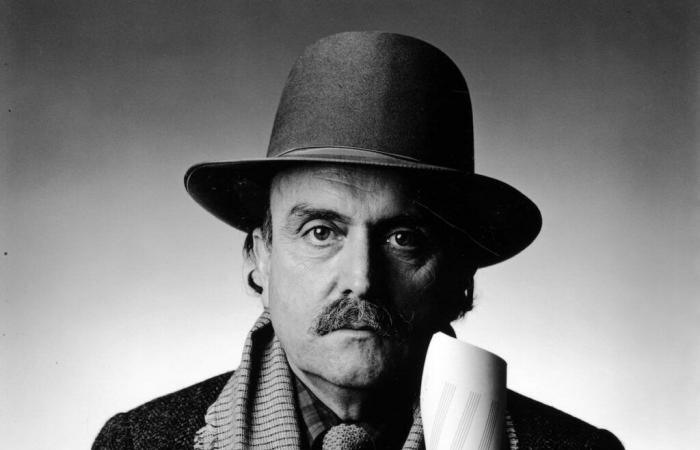Yes, art after death. And no, I don’t mean the pompous and frankly demodé Immortality of the artist through his work. Imagine what Homer must be enjoying with the new Ulysses movie Ralph Fiennes has made. As Woody Allen said or should, “I don’t want to be immortal through my work, but through not dying.” With art after death I am referring rather to the last experiment of Alvin Lucier. Such a last experiment, in fact that the poor man has not had a occasion to see him. It’s all very strange, but I will try to explain it.
A difficult artistic group has just released an installation called Revivification in the Art Gallery of Western Australia, in Perth, which promises to use the “Biological Innovation of Vanguardia to resurrect the musical genius of a deceased composer.” It refers, you will have already guessed, Alvin Lucier, who died in 2021 at age 90. Lucier was an American experimental composer who traveled to Rome in 1960 with a Fulbright scholarship and was hypnotized when he heard the work of Anton Webern, John Cage and Luigi Nono. In one of his most notable pieces, I am sitting in a room (I am sitting in a room), Lucier himself repeats the same phrase obsessively until his rebound against the walls makes it pure sound without a message. He was also a pioneer in making music with his mind, through electrodes that read their brain activity.
In 2020, a year before he died, Lucier gave his consent for Harvard scientists to extract cells from his blood, delay their watch to turn them into stem cells and obtain from there mini -three, organoids of a millimeter where cells donated by the musician differ in several types of neurons and form circuits similar to those of the brain. This technique is being used to make models of neurological diseases and test drugs against them. In this case, they intend to be a recreation of Alvin Lucier’s brain, and not to try drugs, but to make music. This consists of the Perth Exhibition, according to its organizers. If any reader goes to Australia these days, he will tell me how it is. It is music coming from beyond, if we get great.
And it is not the only way of immortality with which it wants to seduce current technology. There are companies that are offering deadbots o grief (Robots of the dead, or of grieving), chatgpt cousins that talk to imitation of the deceased, if one is not very demanding with what an imitator asks. The digital copies of a dead are already a little rancid in science fiction, but let’s not forget that they are fiction. It is now when those systems begin to exist in the real world. It is curious how futuristic stories make impact to true technological news. Still techie to see many series everything is made already seenbut the devil dwells in the details, and the screenwriters usually fail there loudly.
In the real world, immortalize someone involves collecting a lot of deceased data and using them to train a large model of language (large language modelLLM), like the one that underlies Chatgpt, Gemini, Copilot and its competitors. Companies require the relatives of the dead man all their messages, audios, videos and even their institute’s urla, in case of having it. He deadbot deduces from there the most likely answer that the deceased would have given any issue. It may be fun, although it seems likely that all kinds of unrepeatable experiences arise. Imagine that the dead man was a serial killer without his family knowing. What a history.






